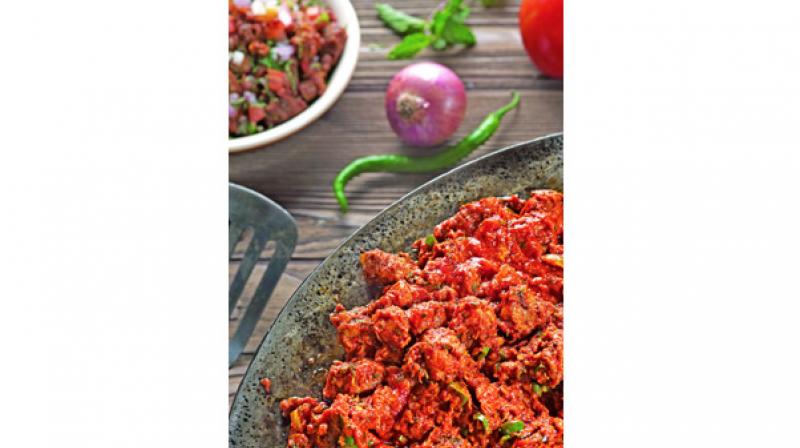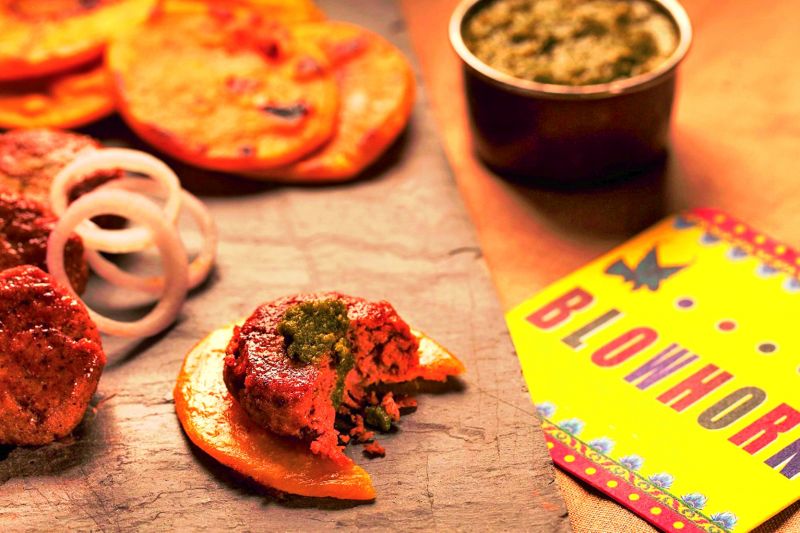Iron power in the kitchen
Chef Ravi Saxena remembers the era when iron utensils held pride of place in the indian kitchen.

Iron utensils, which were once a part of every Indian household, seem to have disappeared from our kitchens, except for the traditional iron tawa. Chef Ravi Saxena traces what led to their disappearance and their very rare usage in the present culinary context.
Reasons for popularity
Iron utensils were popular in kitchens decades ago because they were very cheap at that time, and stainless steel utensils had not entered the market. It is one of the easiest metals to be moulded. Iron, aluminium and brass utensils were primarily used for cooking. People were fond of cooking food in iron vessels because iron imparts a typical taste to the food, ek sondha sa swad aata hai khane mei. Also, cooking food in iron utensils imparts some iron to the food and thus, adds to its health quotient. This is one of the main reasons why iron utensils were widely used in earlier times.
Why they disappeared
Apart from being extremely heavy, iron utensils were also discarded because maintaining them was a tiresome process. One has to take care of them to ensure they don’t rust. For instance, cleaning iron tawa (which is still found in many Indian households) is entails rigorously rubbing its surface with a brick. After that, one should put oil on it, so that the tawa gets its shine back. Personally, after cleaning with the brick, I sprinkle salt on the tawa. Then, I cut one onion into two pieces and polish the surface of the tawa with the onions and salt. I wash it with water after that and then it’s ready to be used for cooking. This process is repeated four-five times till the tawa gets its shine back. There should be no water left on the utensils because then they can easily rust. One has to regularly oil iron utensils.
Now, only iron kadhais and tawas are used
Some houses prefer using iron kadhai for frying purposes. Tawas continue to be one of the most popular iron vessels. And given the special taste of cooking in iron utensils, we have devoted a separate section in our menu at Dhaba to tawa items. These include Tawa Pulao, Amritsari Tawa Macchi, Veg Galouti and Tawa Mutton to name a few.
Tawa Mutton
Ingredients
(for 10 portions)
1 kg mutton chunks
40 gm ginger-garlic paste
18 gm salt
400 gm onion tomato masala
8 gm ginger
40 gm garlic
40 gm brown onion paste
20 gm fresh coriander
14 gm green chillies
100 ml refined oil
10 gm kashmiri chilli powder
10 gm coriander powder
4 gm cumin powder
4 gm black pepper powder
6 gm garam masala powder
100 ml ghee
(For onion-tomato masala)
500 gm tomatoes
750 gm onion
50 gm peeled garlic
500 ml refined oil
10 gm salt
7 gm kashmiri red chilli powder
2 gm turmeric powder
Method
Mix all ingredients of onion-tomato masala in oil and cook. Boil mutton chunks and add ginger-garlic paste, brown onion, oil and salt. Heat ghee in a pan, add chopped garlic, ginger, green chillies and add cooked mutton. Add onion-tomato masala and all the powder spices. Garnish with coriander.
Veg Galouti
Ingredients
(for 3 portions)
300 gm carrot
100 gm french beans
250 gm cauliflower
90 gm green peas
40 ml ghee
40 gm processed cheese
4 gm salt
4 gm kashmiri red chilli powder
2 gm black pepper powder
0.5 gm black cardamom powder
0.5 gm cinnamon powder
0.5 gm clove powder
30 gm brown onion paste
25 gm roasted chana dal powder
55 gm chana dal
Method
Clean, cut and boil all the vegetables, and mince them to make a smooth paste.
Boil chana dal and make a thick paste.
Heat ghee in a pan and cook the vegetables till they become thick.
Cool the mince, add chana dal paste and add all the remaining ingredients.
Heat tawa and put ghee. Make small patties of galouti mixture and cook evenly from both sides till a light brown crispy texture. Serve with mint chutney.
Ravi Saxena, corporate chef, Dhaba by Claridges
(As told to Garima) Arora)


